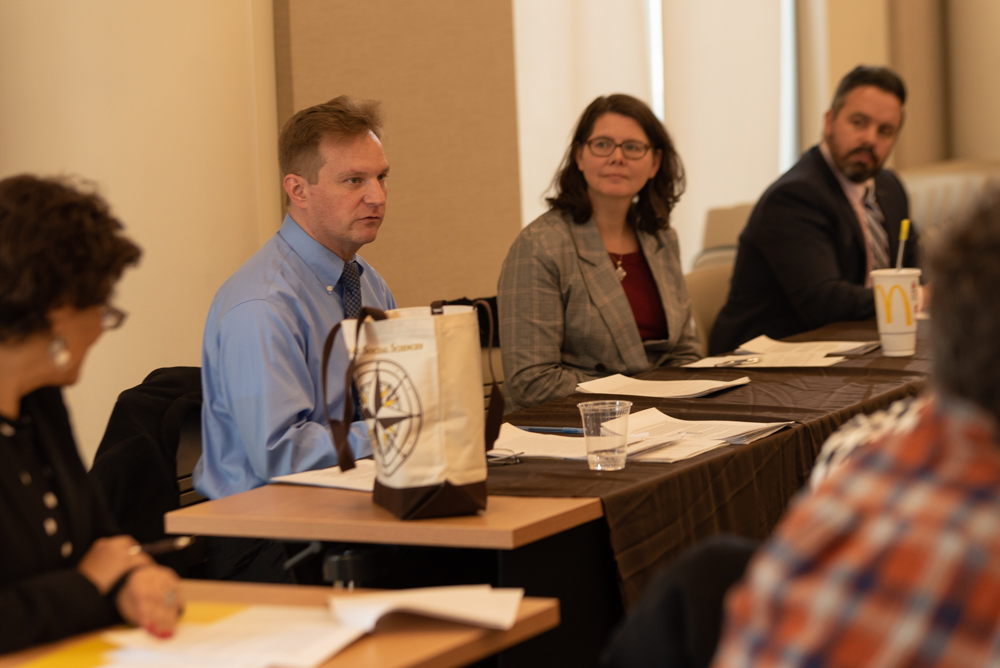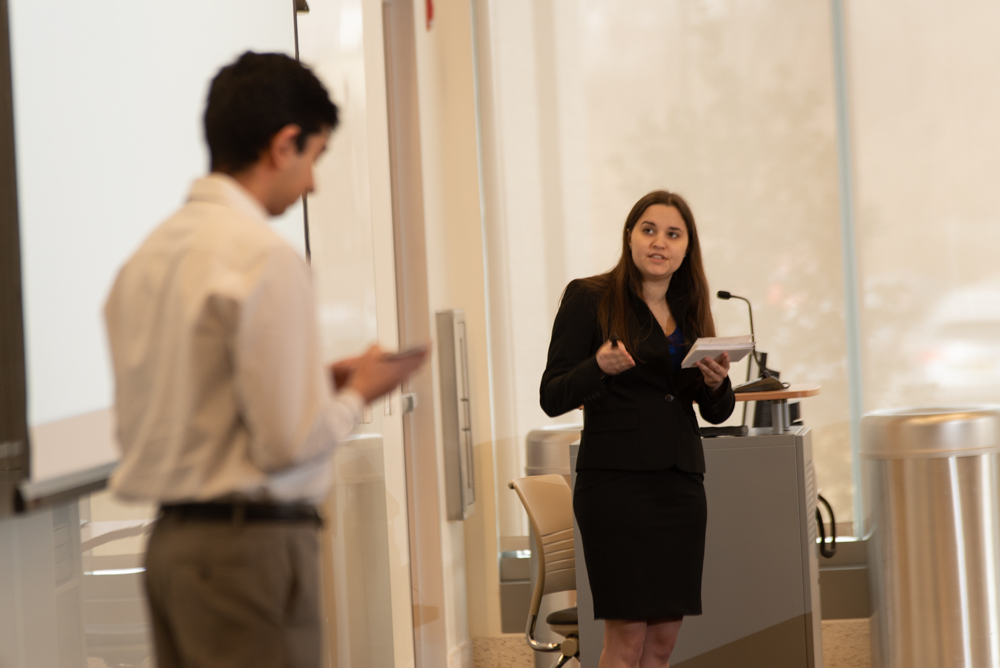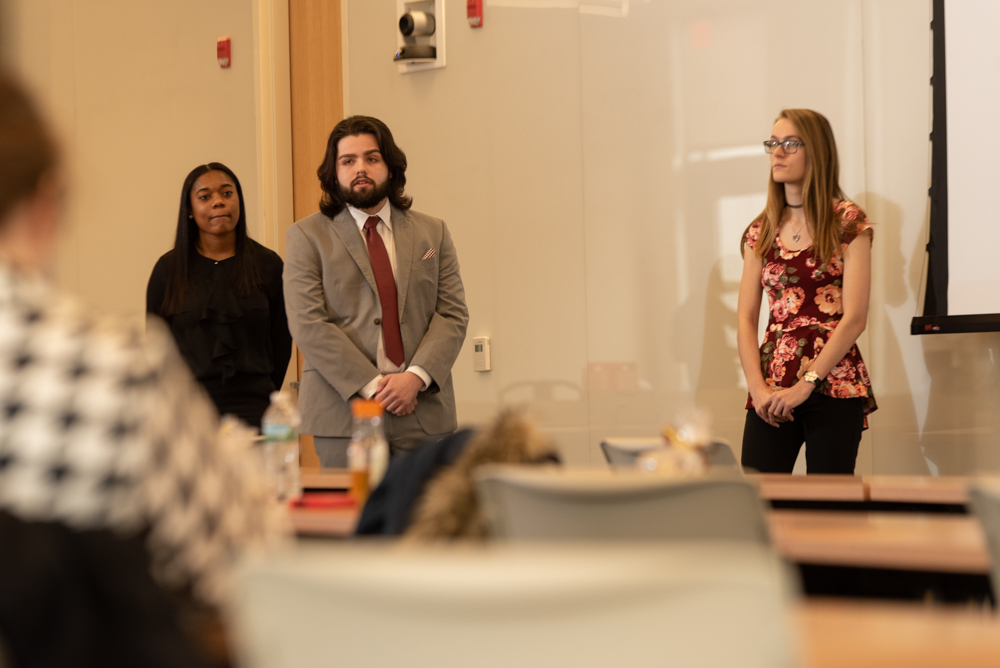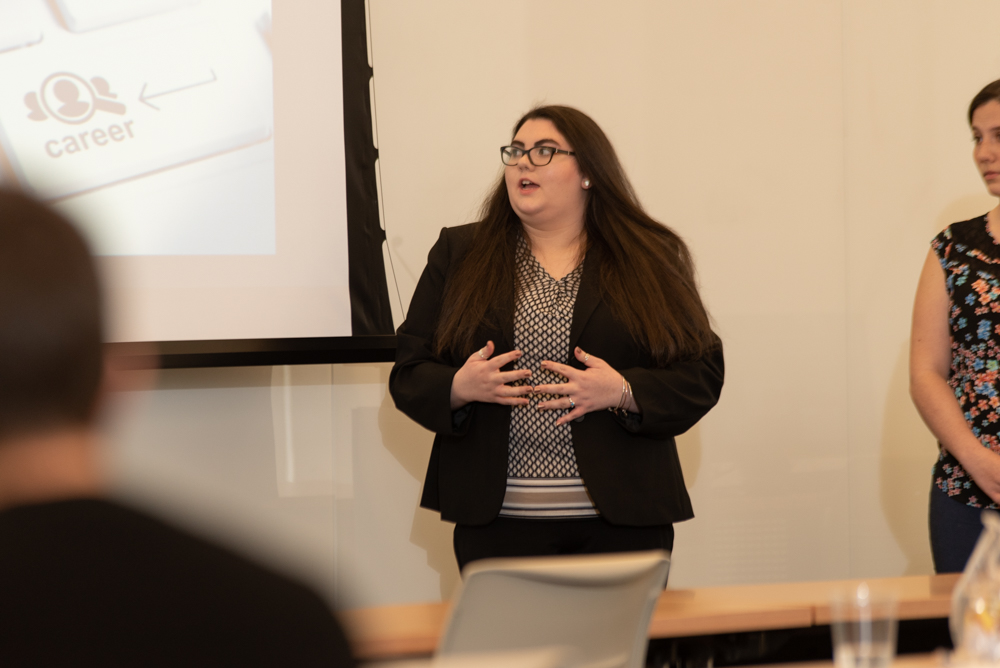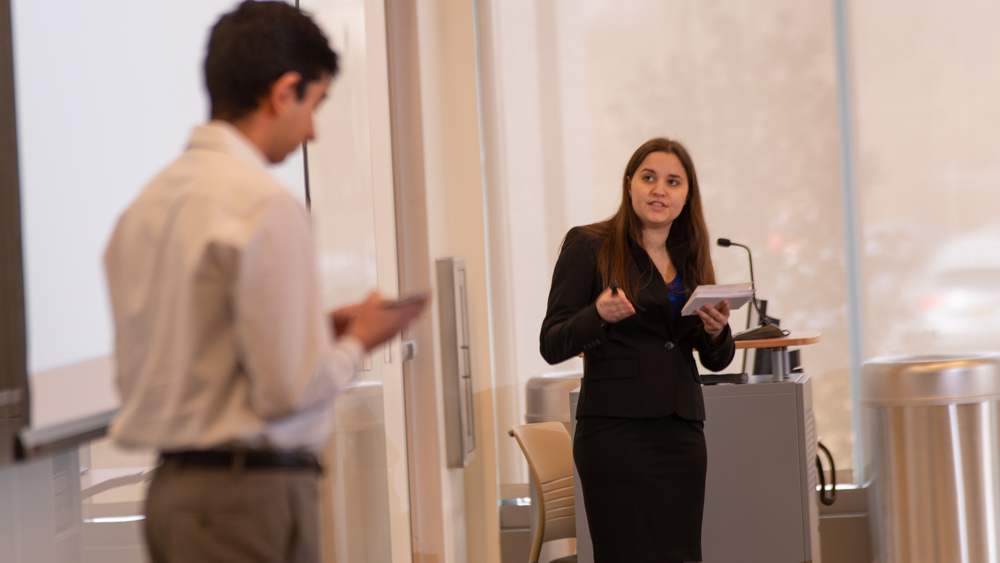Case Study Competition
Case Study Competition
Rowan students compete in 2nd annual CHSS case study competition
The 2ndAnnual CHSS Case Study Competition was held on Friday, Feb. 22, in Business Hall. This year, two teams of CHSS majors and minors presented their interdisciplinary solution to a case study focused on the defense of the liberal arts. Each team was led by a faculty coach who guided their work.
“What I enjoyed most about the competition was watching the students work,” said Whitney Cox, a professor of philosophy & religion. “You hand this idea to students and what comes out is something unexpected and frankly wonderful.”
Coaches and their teams began working together in November to apply their specific CHSS major or minor teaching to address a mythical board of trustees who are threatening to cut the liberal arts programs. Their recommendations also included a funding proposal as part of their solution.
“This competition teaches you valuable skills about collaborating with others and about how to solve a problem,” said Marisa Considine, a philosophy & history major. “It teaches how different majors could work together. I really enjoyed the challenge of it.”
After each team had presented the judges excused themselves to deliberate. One of the judges was Samuel Rosetti, a Rowan alumnus, who graduated in 2001 with a double major in English and secondary education. Rosetti was impressed by each team’s professional presentations.
“I was really impressed by how they pulled together all the different factions of their majors and synchronized them all,” Rosetti said. “The whole idea of the humanities is to enable students to problem solve from their different perspectives.”
After a short break, the competition winner was announced. The team coached by Dianne Ashton, assistant professor of philosophy & Religion and Cox took first place. In delivering their decision the judges noted that each team had presented their recommendations in a very thoughtful way, but believed the winning team had connected their majors to the mythical problem better.
The Ashton-Cox team was made up of Marisa Considine, Gurkirat Dhillon and Yang Zhong.
The other competing team was coached by Evan Sorg, assistant professor of law & justice studies. The team included, Nyasia Brackett, Vincent Giakas, Sydnee Gould and Caily Silver.
###
